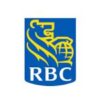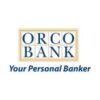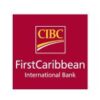Roadmap to purchase a house or building plot on Curacao
- Save the required amount for your co-payment and cost of buyer (c.o.b.)
If you want to buy a house or lot, a co-payment is generally required by the financial institutions in Curaçao. Usually 10-50% of the price of the home is required by Curaçao banks that you must invest as your own money.
- Check how much you can borrow
The second step is to understand how much borrowing capacity you have. Use the At Home mortgage calculator and find out. You can see what your monthly payments would look like based on different interest rates, loan amounts and mortgage terms using the At Home Calculator for Mortgage Repayments. The amount a financial institution will lend you depends on several things, including the amount of your deductible, your current income (and debts) and the value of the property. The financial situation of any co-applicant will also be assessed: If you are buying a home with your partner, the financial institution will also consider their finances.
- Find homes listed online and view properties in person
It is important to do some digging in the area where you want to buy a house before signing the purchase agreement. Once you have chosen the area (or areas) in which you are interested in buying a home, register with local real estate agent. Registering is free and creates no obligation for you. To avoid spending a lot of time browsing the websites of various real estate agents, you can place a free search at At Home, https//:athomecuracao.com
It is important to view property(s) yourself. By viewing homes in the live, you can get a better understanding of their potential (or lack thereof) and gauge whether they give you that indescribable “feel” you can’t really get from behind a computer screen.
- Make a preliminary offer on a house or lot
A preliminary offer includes your terms for buying the property, the most obvious being the price. It is very common to bid less than the asking price. But if other people are interested in the property, you may have to offer the asking price or even more. Once you have decided how much you want to bid, you can tell the broker over the phone or in person, but it is worth doing it in writing as well. Mention in your offer that there are conditions attached, such as arranging financing requirements, an inspection (to find any problems with the property: see next step) and that the house will be taken off the market. The seller can reject your bid or make a new bid (counterbid).
- Inspect before buying
Once your offer is accepted, an inspection survey helps assess the condition of the building and identify structural problems. Although an inspection is optional, it is better to be aware of any problems before you buy so you can make an informed decision. Having the home inspected can detect defects that could affect its value. You may also be able to negotiate a price reduction, for example, if the inspection report states that the roof needs to be renewed. Do not confuse an appraisal report with an inspection report – they are two different things and you should always have your own research done.
- Sign the (preliminary) purchase agreement
A purchase and sale agreement is a legally binding contract between you and the seller. It contains all the details, terms of the sale – this includes things like the price, whether the buyer must first sell another property and the settlement date. Always review your purchase and sale agreement with a lawyer, contract expert or notary before signing: you should always seek legal advice before signing the agreement and during the buying process. You must read and understand the agreement before signing it. A purchase and sale agreement becomes unconditional when all conditions are met. The law gives you 3 more days of reflection after signing.
The broker will help you and the seller include the terms you both want. Although the agent works for the seller, they must also deal fairly with the buyer. They cannot withhold information and they must notify you of known defects in the house. However, signing a (preliminary) sales contract does not mean that you are now the owner! The seller will generally require a down payment.
- Apply for a mortgage through At Home
Now is the time to secure funding! The At Home Mortgage offers you the best deal on the market: fast, easy and free. Within 2 business days, you will get the best terms on your mortgage loan and know exactly what the cost will be to purchase your first home. Costs such as notary fees (about 2%) and transfer tax (4% of the laying value) are regulated by Curaçao law and can be capitalized into the mortgage loan, for example. The mortgage loan term and monthly annuity costs are summarized for you in a chart. You can easily calculate notary fees at this link: http://www.fungaloi-samandar.com/images/downloads/calculate2.php
- Get your insurance in order and get the best deal through At Home
As part of your mortgage application with At Home, you can easily request the best deal on your life and home insurance. It is vital that you have taken out life and homeowners insurance on your new home from the day of ownership transfer – in fact, most mortgage lenders will make this a condition of mortgaging.
- Sign the notarized deed
To become an official owner, you must sign the transfer deed and mortgage deed. Signing takes place at the notary’s office. Only then does the transfer of ownership take place. The notary prepares the documents needed to transfer the property and makes sure your ownership is clear. The notary executes the transaction and submits the application to the to transfer the deeds into your name. On this day, the money is transferred to the seller and you can then pick up the keys from the broker and move into your new home.
- Congratulations! You bought your first home!
Next comes the much more enjoyable task of decorating – or remodeling – your first home to your taste.
- Renovation
Not all homes are sold “move-in ready.” Perhaps water or sewer pipes need to be repaired, wiring urgently needs to be replaced, or (bath) rooms need to be renovated. These are all costs that must be factored into the purchase.
Buying a house always costs a lot of money, and that is also true in Curaçao, even though the prices are usually lower than in the Netherlands, for example. It is usually one of the biggest milestones in your life, and also one of the biggest expenses you will make in your life. Everyone who buys a home faces a variety of financing costs and often “buyer’s fees.” Most homes in Curaçao are often sold as “freehold.” This means that all transfer costs are the responsibility of the buyer. And also when you finally own the beautiful property … that’s when it starts! Because, unfortunately, there are additional costs associated with a property. Examples include mortgage, tax, major and minor maintenance, insurance, etc.
Although there are other costs when buying a home, we have detailed the 5 most important ones here:
1- Taxation
There are 2 types of taxes that play an important role, and they are:
– You pay transfer tax once when you purchase the home and it is 4% of the laying value.
– Real estate taxes you pay every year. As long as you own the property you will have to deal with this. On Jan. 1, 2014, a new property tax was introduced to replace the land tax. Want to know more about OZB? Click here
2- Notary
As mentioned, the notary is responsible for transferring the registry property and remitting the transfer tax, among other things, but that is not all. The notary is also responsible for the debenture seal and the registration of the mortgage deed. Usually there are fixed rates for the notary’s work, but this can vary from one notary to another. In addition, the amounts depend on the purchase price.
3- Mortgage deed (in case of financing)
When buying a home, most people need financing, and this is usually accompanied by risk insurance and/or life insurance that must be purchased for this purpose. It is always wise to save your own money before buying a home because banks do not like to finance more than the value of the home or the amount you can repay in a certain period of time.
4- Broker
If you want to hire a real estate agent to purchase the new home, you will also pay for the use of their services. This is called brokerage commission. This brokerage fee can vary greatly depending on the service package you purchase from the broker. It is also your confidant who looks at your personal (and also business) situation to create a weighted roadmap with you. In it, you also discuss the broker’s fees.
5- Rebuilding
Not all homes are sold “move-in ready.” Perhaps water or sewer pipes need to be repaired, wiring urgently needs to be replaced, or (bath) rooms need to be renovated. These are all costs that must be factored into the purchase.
If you want to buy a house, there are quite a few costs involved. We recommend that you check with a real estate agent with years of experience, The At Home brokers keep us recommended as a buying agent!







